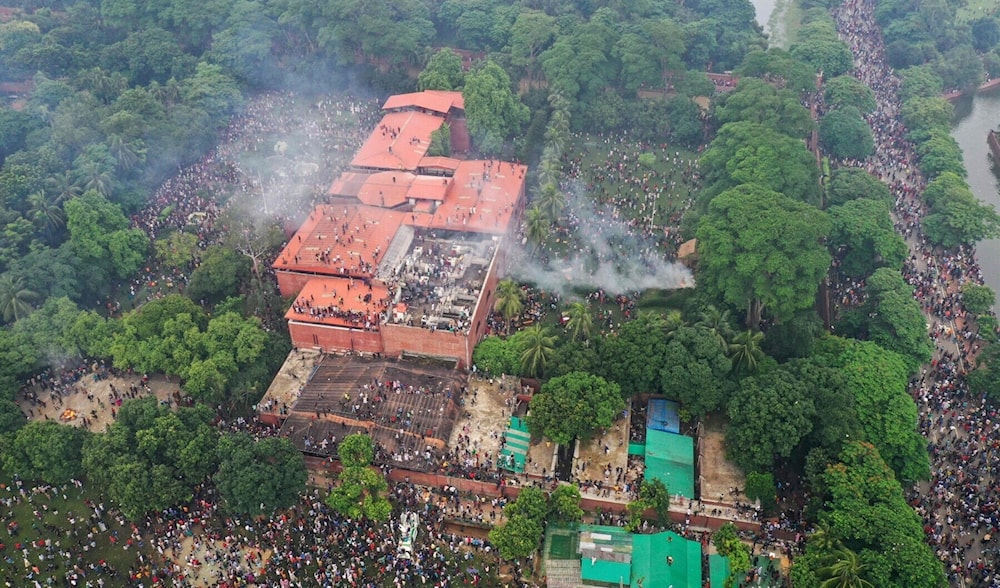Bangladesh president dissolves parliament after PM resignation
Student protesters stressed demonstrations would continue if the parliament was not dissolved after weeks of protesting against anti-quota laws, characterized by violence and unrest.
-

An aerial view shows anti-government protesters storming Bangladesh’s ousted Prime Minister Sheikh Hasina’s palace in Dhaka on August 5, 2024. (AFP)
Bangladeshi President Mohammed Shahabuddin dissolved parliament on Tuesday after the resignation of Prime Minister Sheikh Hasina, who fled to a safe house outside New Delhi after fleeing the country following violent crackdowns during the student-led anti-quota protests, enabling the formation of an interim government.
Protesters stressed demonstrations would continue if the parliament was not dissolved. The decision to dissolve parliament was taken after consultations with the heads of the defense forces, political party leaders, and civil representatives, the presidential statement said.
The ruling Awami League's opposition, Hasina's nemesis, and chairperson of the Bangladesh Nationalist Party (BNP), Begum Khaleda Zia will be cleared of "all charges legally and come out soon" from house arrest after her conviction in 2018 in a graft case, a move that was "unanimously decided," Shahabuddin stated.
Hasina's resignation and departure from the country on Monday ended her 20-year rule, a position she inherited from her state founder father, Mujibur Rahman, who was assassinated in 1975.
Bangladesh army chief set to meet protest organizers after PM resigned
Student organizers of the Bangladesh anti-quota protests were scheduled to meet Army Chief General Waker-Uz-Zaman following a military announcement that it would form an interim government after the resignation of Prime Minister Hasina on Monday.
Waker-Uz-Zaman was expected to meet the demonstration organizers at 12 pm local time (0600 GMT) on Tuesday, the army said in a statement following the general's televised address on Monday announcing Hasina's resignation after she fled to India due to the nationwide protests demanding she step down after weeks of violent crackdowns on demonstrations, adding that an interim government would be formed.
The general said he held talks with major political party leaders, excluding the former prime minister's ruling party, the Awami League, to discuss future proceedings. He is also set to attend a meeting with President Shahabuddin, who announced that the transitional government will hold elections as soon as all parties and stakeholders have been consulted.

 2 Min Read
2 Min Read








